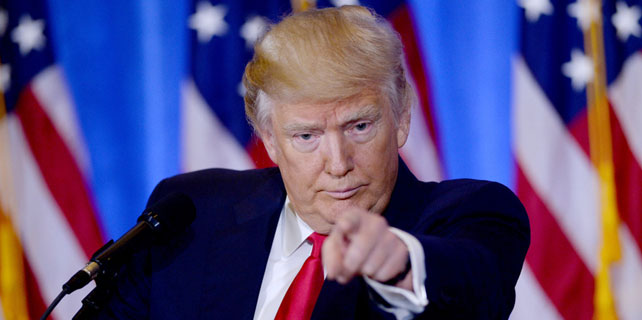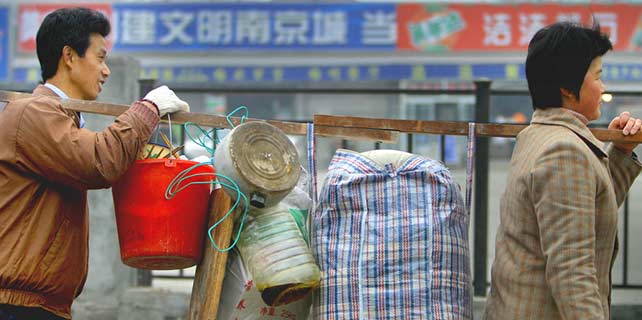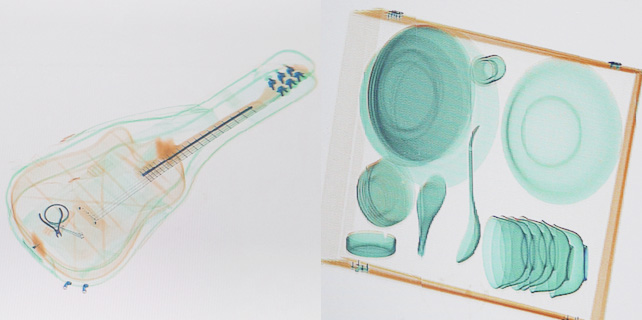Trump's presidency sparks uncertainty across LatAm
MEXICO CITY -- Newly-inaugurated US President Donald Trump and his hard-to-pin-down policies have generated disquiet and uncertainty among officials and political observers throughout Latin America.
In Mexico, a neighboring country where 80 percent of exports are destined for the US market, many are perplexed by Trump's isolationist and protectionist proposals, including building a wall along the border and threatening to impose heavy tariffs on American manufacturers that produce in Mexico and sell homeward.
Underscoring just how unpopular Trump is south of the border, at a panel discussion hosted by the Americas Society/Council of the Americas last September, Mexican Economic Minister Ildefonso Guajardo Villarreal referred to the then presidential candidate as "the devil."
"If we have to talk to the devil to guarantee the safety and the future of the Mexican people in Mexico and the US, we will talk to the devil," Villarreal said.
But most observers here held the belief that Trump's bark is worse than his bite.
Economist Angelina Gutierrez of the National Autonomous University of Mexico (UNAM), feels it is unlikely that US-owned assembly plants in Mexico will be swayed by Trump's threats to dismantle their operations here and relocate across the border.
"I don't think the transnational companies are willing to cancel their investments and destroy the chain of production, distribution and commercialization, which are essential for globalization and the integration of countries into regional industrial and trade blocs," said Gutierrez.
US automaker Ford announced earlier this month it was cancelling plans to build a new 1.6 billion US-dollar plant in Mexico, though it claimed the decision was unrelated to Trump's new policies.
That decision is bound to cost Ford, said Violeta Rodriguez, an academic at UNAM, since it is 40 percent more expensively to manufacture a vehicle in the United States.
In Brazil, analysts feel the 70-year-old Trump is out of touch with the times.
"What surprises me is Trump's view of global economic relations, which belongs more to the 18th or 19th centuries," Mauricio Santoro, a professor of international relations at the State University of Rio de Janeiro, told Xinhua.
"Believing that you can only get rich at the expense of your neighbor is a foolish idea that ignores centuries of empirical evidence and the very rise of the United States itself," added Santoro.
Gunther Rudizit, a professor of international relations in Rio Branco, described Trump as "unpredictable" as "nobody really knows what he will do."
"If only he were a cold businessman, then he would be more predictable," added Rudizit.
In Argentina, Carolina Sampo, a visiting professor from Madrid's Complutense University, said Trump's policies threaten to undo recent advances in bilateral ties with Argentina.
Ties between Buenos Aires and Washington were cold and often hostile during the left-leaning administration of Argentine former President Cristina Fernandez (2007-2015), who pursued greater integration with regional allies, including Venezuela, much to the consternation of the White House.
Her successor, Mauricio Macri, made patching up relations with Washington a central theme of his campaign and as a result played host to former US President Barack Obama in March in Buenos Aires.
Sampo expects Trump to pursue "a much more protectionist economic policy and much more restrictive foreign policy," in stark contrast to Obama, during whose presidency Washington restored diplomatic ties with Cuba.
Argentinian Paola de Simone, a specialist on international law, agrees. "It remains to be seen whether under (the) Trump (administration), ties between the two countries continue to thaw or, on the contrary, begin to cool off again."
Should they cool, "it would not be Argentina's fault, but the fault of US isolationism," added Simone.
In Cuba, which along with Mexico has potentially the most to lose from a Trump presidency, there's plenty of skepticism regarding the future of bilateral ties.
"What seems obvious is that Cuba is not an immediate priority for Trump. Given the unknown decisions he will take concerning our country, the process of normalization of ties will either advance or regress, which is concerning," said Tania Orozco, a state worker.
She also noted Trump's famed intransigence and sympathized with Mexico.
"What ... caught my attention was his inflexibility and authoritarianism in building a wall along the Mexican border. He said that country has taken advantage of the United States, when we all know it is the exact opposite," said Orozco.
Peruvian congressman Alberto Quintanilla noted Trump's message conflicts with the trend towards global integration.
Following Trump's inauguration speech on Friday, Quintanilla told Xinhua that "there is a kind of position (in his words) that runs counter to global integration, but we hope it's just temporary, and in the end the world will move towards greater integration."






















